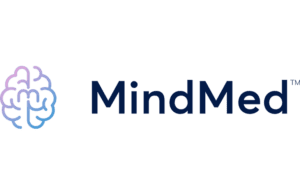 Psychedelic medicine firm MindMed (OTCMKTS:MMDCF) has dosed the first patient in a Phase 2b dose-optimization trial of MM-120, a pharmaceutically optimized form of lysergic acid diethylamide (LSD).
Psychedelic medicine firm MindMed (OTCMKTS:MMDCF) has dosed the first patient in a Phase 2b dose-optimization trial of MM-120, a pharmaceutically optimized form of lysergic acid diethylamide (LSD).
The study will test the potential of LSD to treat general anxiety disorder (GAD), which affects about 3% of the population.
While LSD emerged as the definitive psychedelic compound of the 1960s, psilocybin has more recently emerged as a more popular recent focus of clinical trials. LSD arguably has seen more cultural backlash than psilocybin.
Unravelling psychedelic mysteries
Evidence is mixed regarding LSD’s potential to treat mood disorders. Some LSD users report obtaining life-changing insights from their experiences. For instance, the actor Cary Grant reported experiencing an “immeasurably beneficial cleansing of so many needless fears and guilts” after ingesting LSD an estimated 100 times in a therapeutic setting from 1958 to 1961. Conversely, a recent study in Addictive Behaviors found that LSD use was associated with an increased likelihood of major depressive episodes and suicidal ideation when used recreationally.
Researchers, however, widely studied the potential of LSD in clinical studies to treat mental disorders in the 1950s and 1960s before the molecule was made illegal under the Controlled Substances Act in 1970. Much of that early research concluded that LSD had promising for treating disorders ranging from addictions to depression.

Robert Barrow
The drug is also remarkable for its potent effects at small doses. “If you look across neuropsychiatry, LSD is one of the most potent molecules ever studied,” said Robert Barrow, CEO of MindMed. “And it has demonstrated some remarkable preliminary signs of potential activity. So I think LSD stands out as the best studied and best characterized [psychedelic] molecule out there.”
Previous researchers have documented LSD’s tolerability, pharmacokinetics and pharmacodynamics.
MindMed is bullish that LSD will “have a broad impact and anxiety and beyond,” Barrow said.
The company is also investigating the use of LSD to treat cluster headaches and major depression.
LSD induces a long-lasting duration of action of up to 12 hours in some cases. However, how that duration of effect relates to its therapeutic potential remains unclear. “We don’t know whether a longer duration psychedelic experience is better, the same or worse than a very short acting experience,” Barrow said. “We do know that LSD has been studied more than any of the other [psychedelic] molecules historically with some remarkable and promising preliminary signs that there may be some real clinical activity here.”
The company hopes that data from the Phase 2b study will inform the design of pivotal Phase 3 clinical studies.
The question of LSD dosing
In particular, the study could shed light on the impact of LSD dosage on generalized anxiety disorder. Investigators will break roughly 200 participants in the study into five groups to assess the effects of 25, 50, 100 or 200 μg of LSD compared to placebo. “It’s going to be fascinating to understand the differences in response and durability of a clinical response to each of these dose levels,” Barrow said.
Previous research found that 25, 50, 100 and 200 µg dose levels engendered experiences of “oceanic boundlessness.” The highest three dose levels also led to reports of “anxious ego dissolution.”
To help participants navigate potential difficult experiences while under the influence of LSD, MindMed offers education to prepare for the experience. “We’re not over-emphasizing psychotherapy as part of the treatment,” Barrow said.

Example of a LSD dosing room for the MiniMed study. [Image courtesy of MiniMed]
Investigators in the study will administer LSD in environments that resemble a residential environment.
Exclusion criteria for the study prohibit patients with schizophrenia, bipolar disorder, posttraumatic stress disorder or other psychotic disorders from participating.
As anxiety and depression rates have increased significantly during the pandemic, Barrow said he is optimistic about the promise of psychedelic molecules such as LSD to potentially have “rapid and durable clinical effects” in the short term. “We have drugs in anxiety such as benzodiazepines that work rapidly, but they have toxicities that limit their use in the longer term,” he said. “And SSRIs may take weeks to work.”
While drug developers continue to increase the variety of treatment options for mental health disorders, “nothing we have seen quite rises to the standard of what we hope will be able to achieve with psychedelic therapies.”